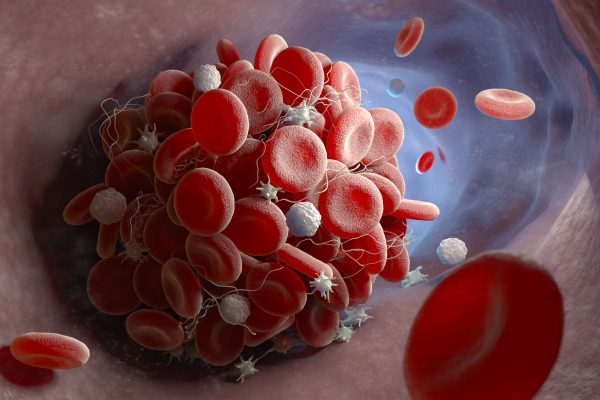
A systematic review and meta-analysis suggest that the use of direct oral anticoagulants (DOACs) reduces the occurrence of recurrent acute venous thromboembolism (VTE). The findings of this study were recently published in the journal Mayo Clinic Proceedings.1
The systematic review analysed data from 2,894 patients enrolled in four randomised control trials (Caravaggio, ADAM VTE, SELECT D, and Hokusai VTE) with either active cancer or a history of cancer.2-5 Around one-third of the patients had deep vein thrombosis (DVT) as the qualifying thrombus. More than 90% of the patients had solid tumours, and more than half (61%) patients had locally advanced or metastatic disease. In these clinical studies, dalteparin was compared with edoxaban, rivaroxaban, and apixaban. The patient follow up in these trials ranged from 6 to 12 months.
The review showed that treatment with a DOAC significantly decreased VTE events in comparison to dalteparin (5.6% vs 9.1% respectively, odds ratio [OR]: 0.59; 95% CI: 0.41 to 0.86) without any significant increase in major bleeding event rates (4.8% vs 3.6%, OR [95% CI]: 1.34 [0.83-2.18]). However, more clinically relevant nonmajor bleeding events were observed in the DOAC arm vs dalteparin (11.2% vs 7.3%; OR [95% CI]: 1.69 [1.13-2.42]).
The network meta-analysis showed that recurrent VTE events were significantly reduced with apixaban (OR: 0.41; 95% credible interval [CrI]: 0.16 to 0.95) and rivaroxaban (OR [95% CrI] 0.58 [0.37 to 0.90]) as compared to dalteparin. Contrarily, major bleeding and clinically relevant nonmajor bleeding events were increased with apixaban and rivaroxaban, respectively, versus dalteparin and the other DOACs. There were no significant differences between DOACS as a class and dalteparin or between DOACs.
DOACs should be considered standard of care for treating recurrent VTE in cancers.
References